What’s the Cost of Living in Chiang Mai, Thailand?
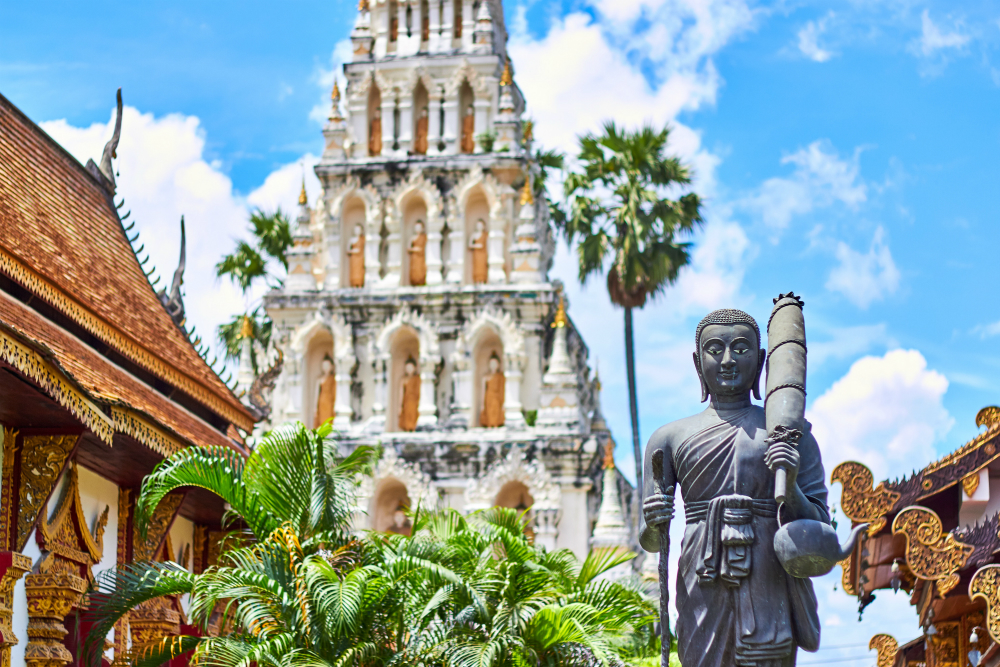
One of the pull factors of Thailand is the low cost of living, but how much does it really cost? Living comfortably in Chiang Mai, expect to pay 28,100 Thai baht per month. That’s roughly $873 or £644.
That includes the following:
- Accommodation in a house, plus a guesthouse in Pai — 8000฿ / $248 / £183
(15,000฿ to rent the house + 1000฿ for a double room in Pai, divided by two people) - Taxis for transport (Uber or Grab) — 500฿ / $15 / £11
- Groceries (eating in for breakfast and lunch, plus coffee) — 3583฿ / $112 / £82
- Eating out frequently (most dinners, plus beer and coffee) — 7406฿ / $230 / £170
- Activities (massages, yoga classes etc) — 1575฿ / $49 / £36
- Essentials (scooter rental, coworking space rental etc) — 6538฿ / $203 / £150
- Other expenses such as VISAs are included below
Total Cost of Living in Chiang Mai: 28,102฿ / $873 / £644 per month
You can view our complete budget here for a couple living in Chiang Mai.
If you plan to travel around Thailand rather than live in one place, check out our Thailand travel budget post.
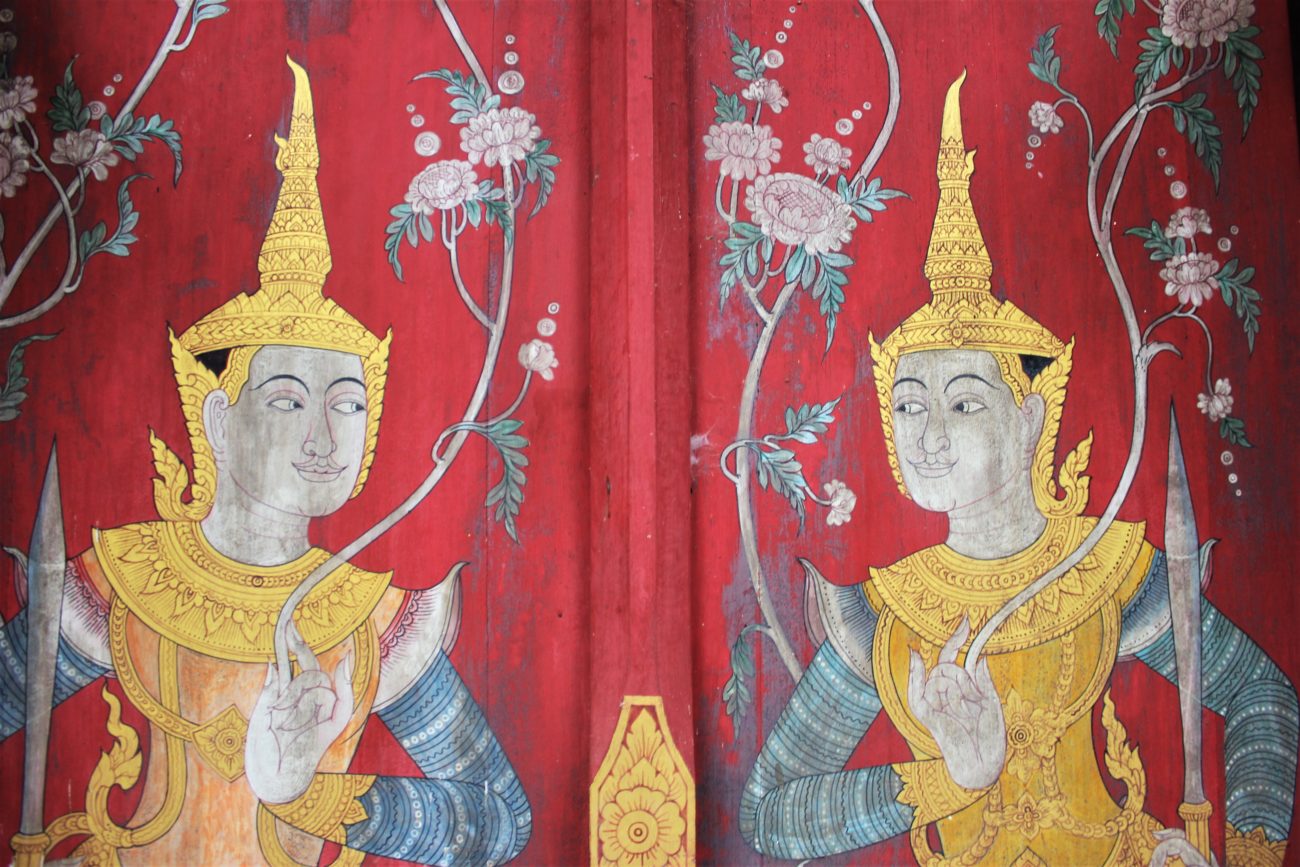
Living in Chiang Mai
Living in Chiang Mai is amazingly easy. But remember that if you’re a farang (foreigner), you’re going to have to pay a premium for renting an apartment and other basic necessities when living in Chiang Mai. Fortunately, Chiang Mai is still very affordable.
After our flight to Bali was cancelled because of the Mt Agung volcano eruption, we decided it was time to set some roots in Chiang Mai for 2 months. We love the city because it’s perfectly set up for digital nomads like us and it’s cheap. We work full-time (8 hours per day on weekdays) which means that we’re able to keep our spends quite low as we mainly save adventures for weekends.
In this blog post, we share all of our monthly costs living in Chiang Mai, as well as our favourite spots in the city. Check out our other post with recommendations for vegetarian restaurants in Chiang Mai.
How To Find 1-Month Rentals in Chiang Mai, Thailand
We spent 15,000฿ for a month-long rental, bills included. We got a cute two bedroom house with a white picket fence. It’s not too difficult to find a month-long rental for 10,000-12,000฿ Thai baht (or less if you’re great at haggling or it’s low season) or a room in a shared rental for 8000-10,000฿.
We didn’t put down a deposit as we didn’t want to be left with a pile of baht on our last day in Thailand. However, many rentals ask for 1-month’s rent as deposit plus the month’s rent. You might be able to negotiate this depending how friendly your landlord/lady is. Our bills for water, electric and wifi are included in our 15,000฿ rental price. However bills are usually additional on top of the monthly rental price, so be sure to check with your landlord/lady.
We found our house in Chiang Mai through Chiang Mai Facebook groups. We posted in all of the Chiang Mai rental and property groups to say we were looking for an apartment or small house in the city for the month of December. We promptly had quite a few messages, looked at a few places and the chose the best one that was available at the time.
We used these Facebook groups to find our rental accommodation in Chiang Mai:
- Chiang Mai condos for sale & rent
- Property for sale/rent in Chiang Mai, rent condos & homes
- House for rent in Chiang Mai
- Chiang Mai Expats
- Chiang Mai Nomad Girls (great for ladies looking to live in a shared apartment with other women)
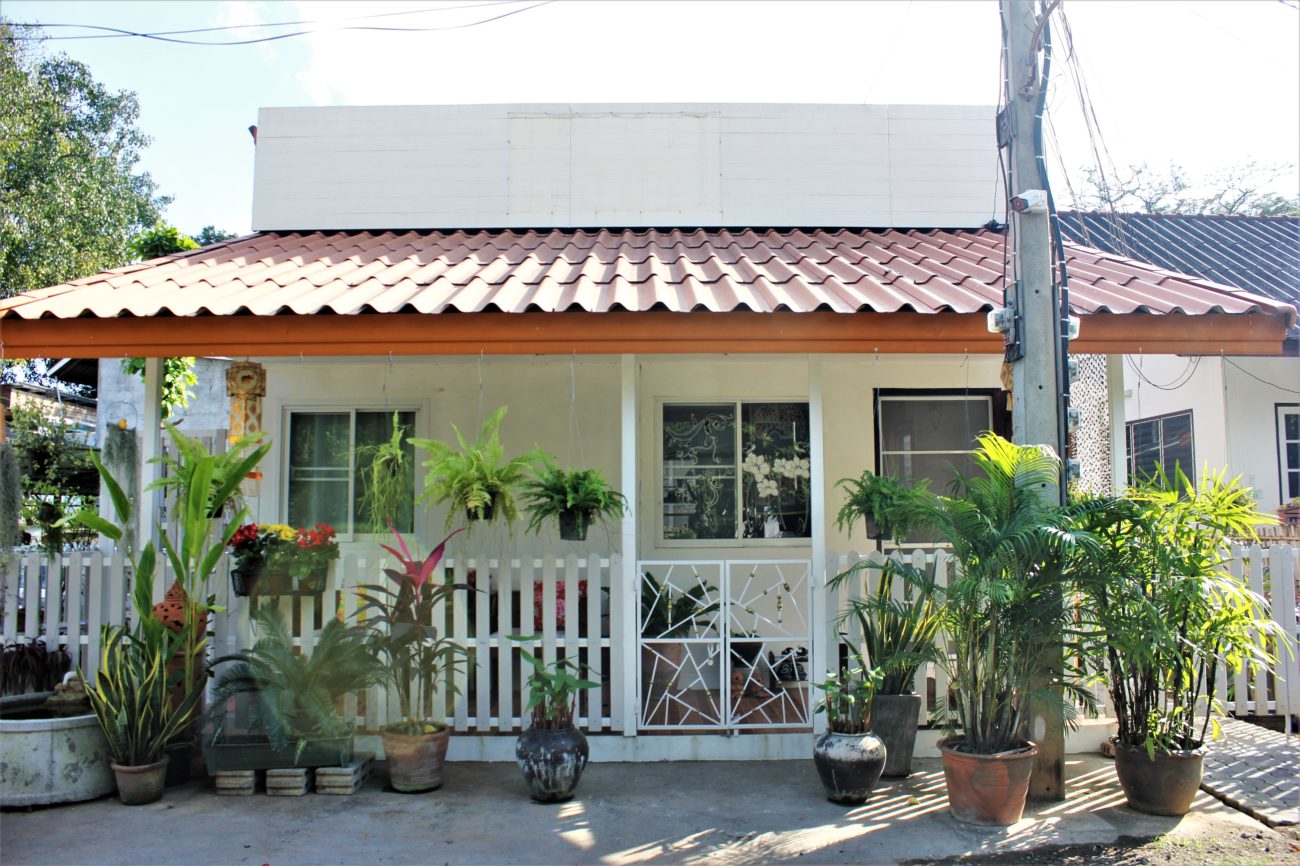
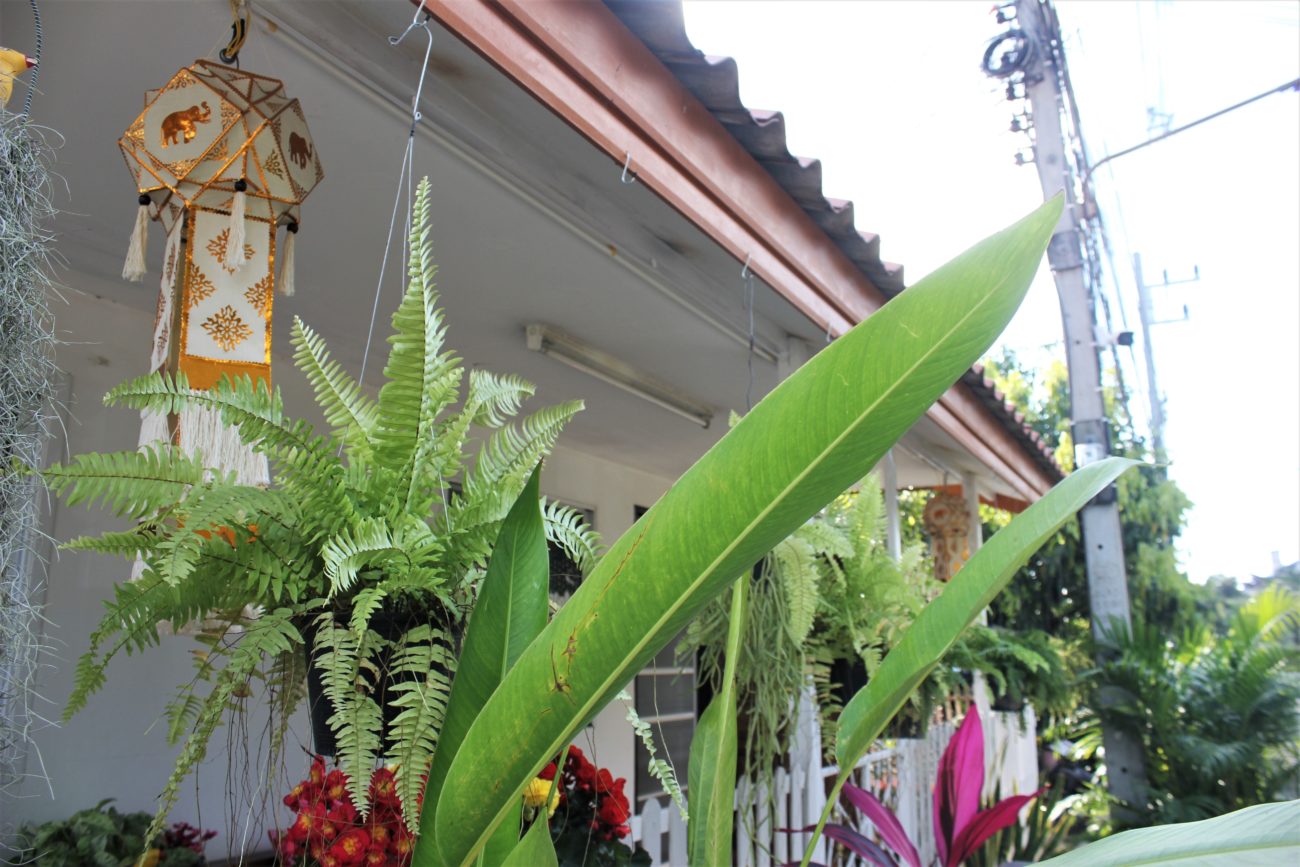
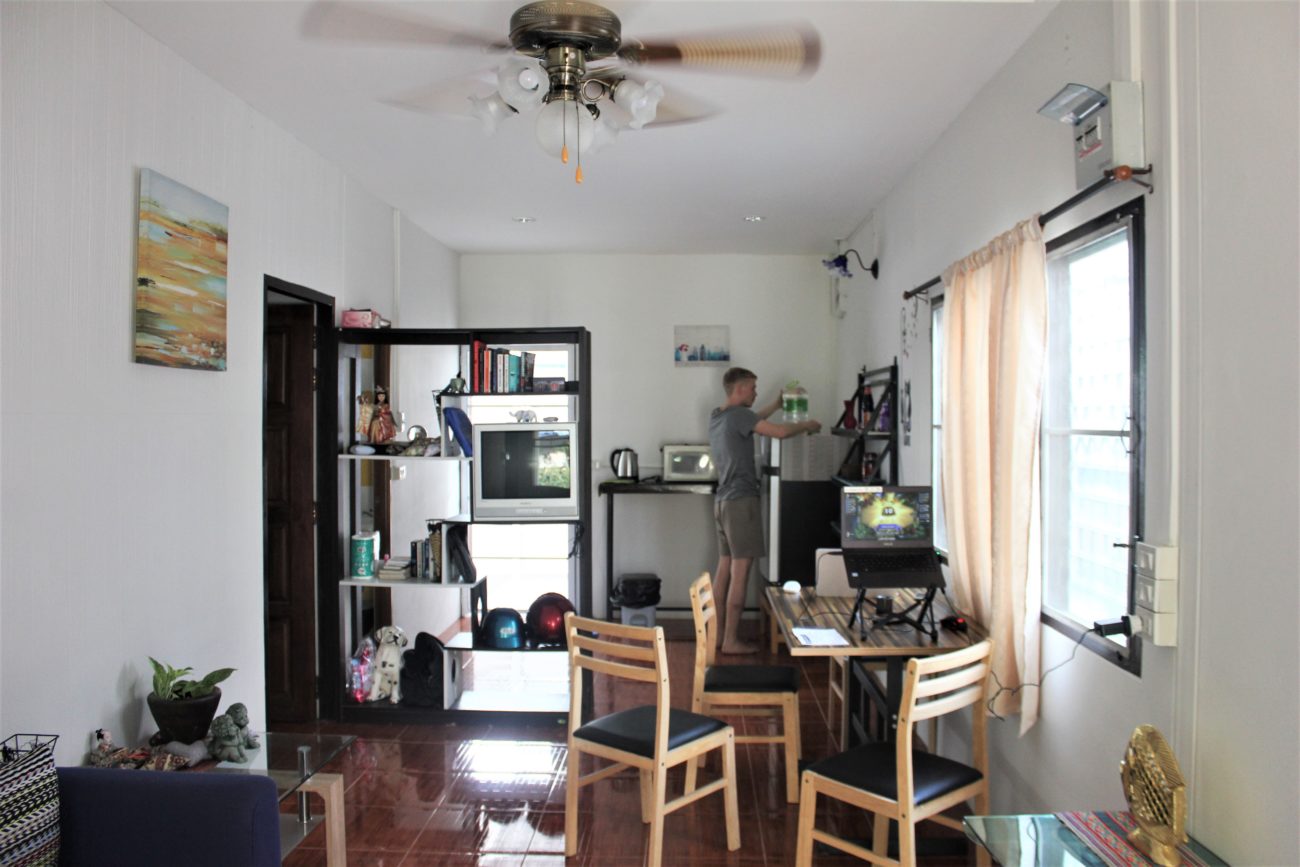
Check Airbnb (£25 off with our link). Our landlady actually rents her house on Airbnb but decided she’d prefer to rent to us for a month instead. Though our landlady contacted us after seeing our post on Facebook, you can contact hosts on Airbnb and listings usually give discounts for 1-month rentals. It’s very easy to find a room on Airbnb for as little as 8558฿ / $266 / £196 per month.
Cleaning! We also spend 380฿ on getting our place cleaned through the useful app BeNeat. You can get a 20% discount with our link.
Cost of Local Transport in Chiang Mai, Thailand
A red taxi within the old city in Chiang Mai is 20฿ to 30฿ per person. If you’re taking a red taxi outside of the city, expect to pay 80-100฿ per person. We most often used Grab or Uber apps. These are more expensive (though not really if you’re a couple!), but come to your door and you don’t have to haggle.
Cost to Rent a Scooter in Chiang Mai, Thailand
We were able to rent a scooter for a month for 3000฿ / $92 / £69. Because the people at the gas stations seemed to be very approximate with prices, we always paid exactly 100฿ to refill — no matter how much was in the tank.
We also spent 500฿ on a fine for not having a valid International Driver’s License (our bad!) Apparently, foreign driving licenses are no good in Thailand and you must have an International Driving Permit. There are plenty of people on TripAdvior who will tell you that you can use foreign driving licenses in Thailand, but they are incorrect.
In our second month in Thailand, we swapped our scooter for a bicycle (1300฿ for the month plus 300฿ for the helmet). This worked out at a similar price as the scooter, but felt a lot safer and helped us exercise our legs.
Driving a scooter is hard work in Chiang Mai due to the busy ring road around the moat and road safety not being as strict as in European countries. If you’re not confident, comfortable or experienced driving a scooter, we’d recommend a bicycle.
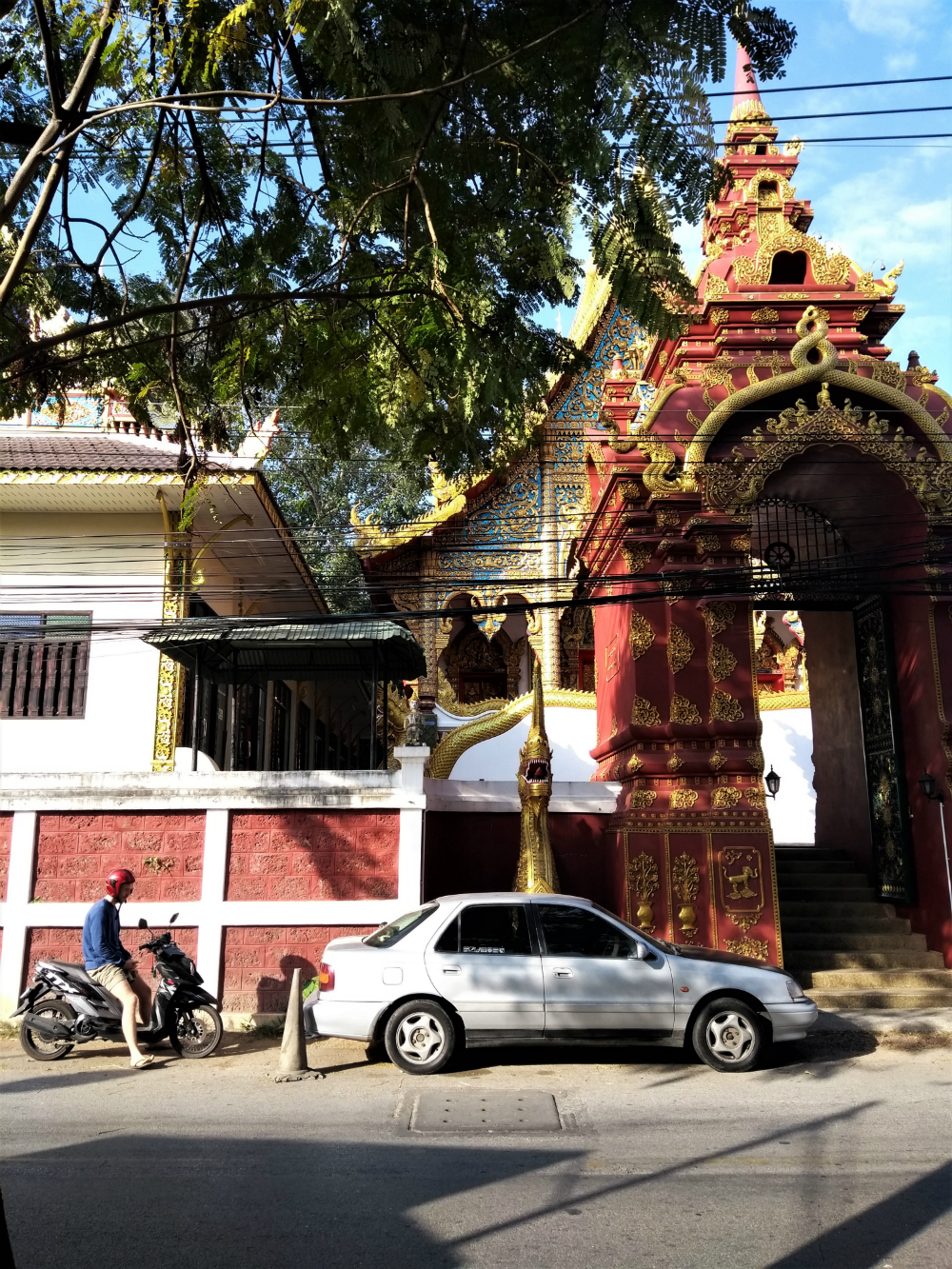
Cost of Food in Chiang Mai, Thailand
Our groceries came to 3583฿ / $112 / £82 per person for the month. That’s mostly breakfast and lunch food for all week days! We shopped at the fancy Rimping supermarket which is similar to a supermarket in the UK — both in terms of products and prices.
We also spent a fair chunk getting fresh bread (120฿), hummus (80฿) and kimchi (75฿) delivered by the amazing Chiang Mai Bread company. You can order from Chiang Mai bread on Facebook and they deliver to your door by bike for 50฿.
If you’re on a strict budget, you should shop exclusively at the local fresh markets. You’ll be able to buy fresh fruits, vegetables, noodles, coconut milk and spices for at least half of what you’ll pay at the supermarket. We found that we were overcharged if we tried to shop at the local markets in tourist areas, but charged the normal prices if we shopped in less touristy areas.
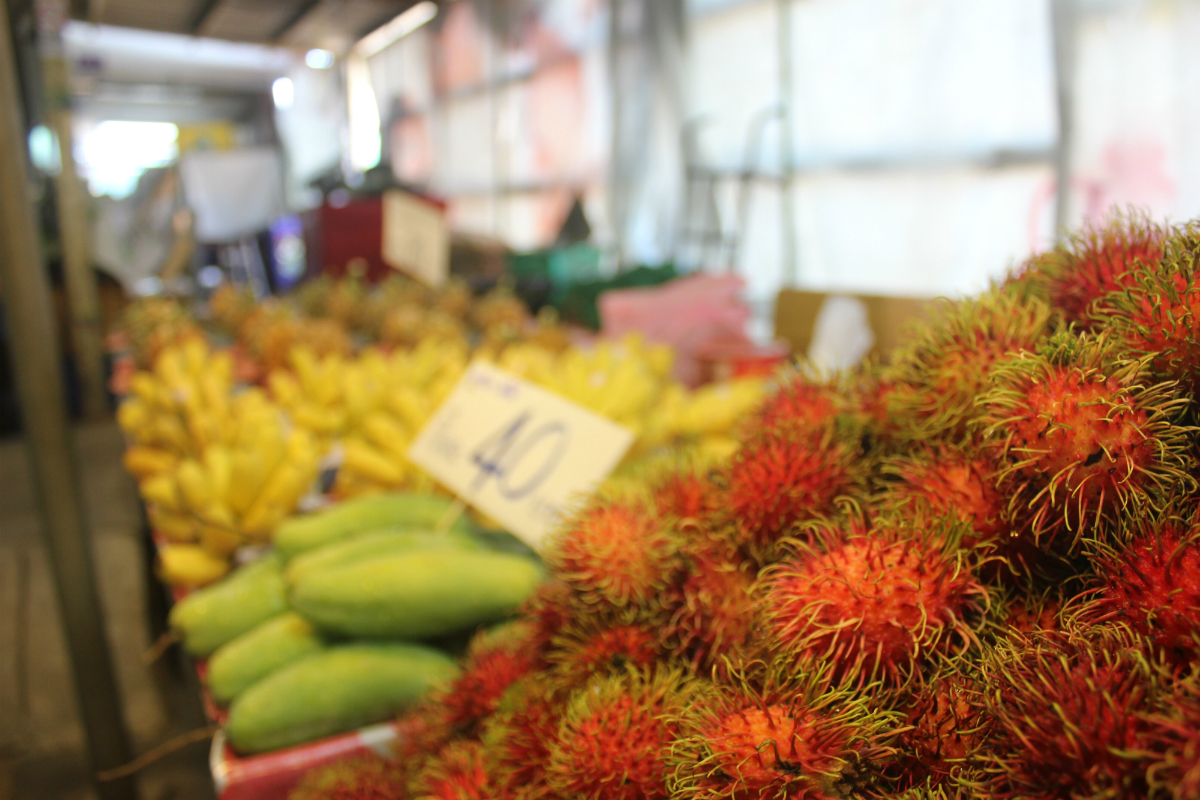
Shopping in local markets
Cost of Eating Out in Chiang Mai, Thailand
Eating out in Thailand is definitely one of the perks! You can eat a green Thai curry or a pad Thai for at little as 60฿. Even in mid-range restaurants it’s not unusual to eat for under 100฿ per dish. Western style food tends to be more expensive and less tasty, as is food in the main tourist areas.
See our guide to vegan and vegetarian restaurants in Chiang Mai.
Beer — Drinks are relatively expensive in Thailand! The going rate is about 60฿ ($1.87 / £1.38) for a small bottle of local beer, which sounds okay until you realise that’s the same price as a plateful of food. Imported beers and craft beers are another level more expensive: I spent 220฿ on an (admittedly delicious) IPA.
Coffee — A shot of espresso should cost 40฿. Fancy coffees and smoothies can easily cost 60฿+.
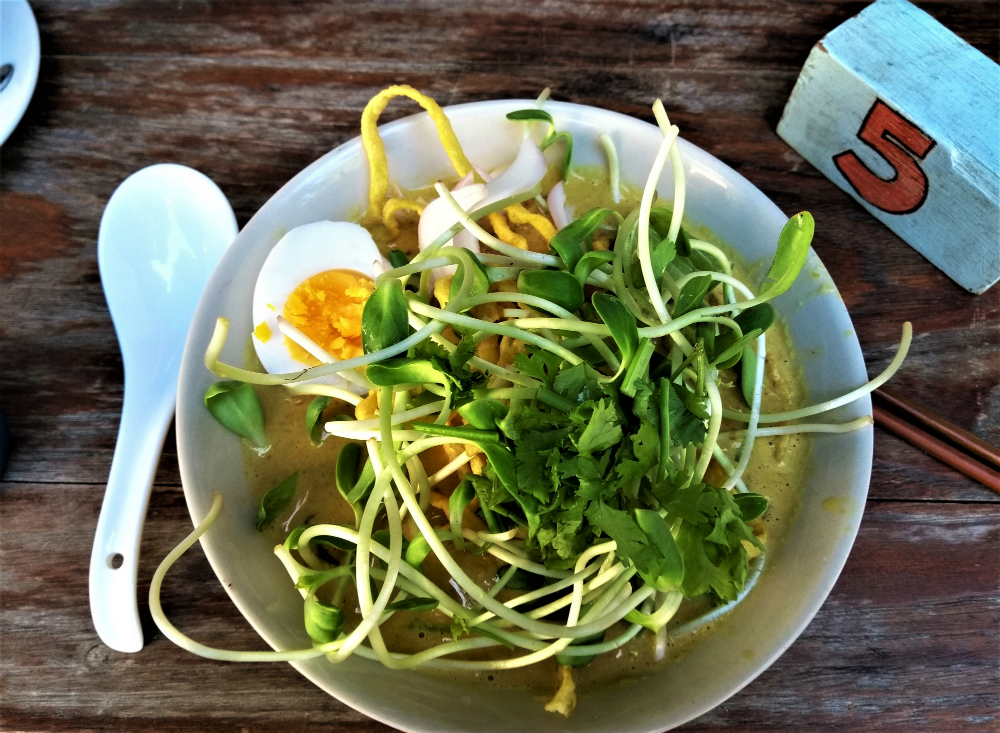
Vegetarian khao soi
Activities in Chiang Mai, Thailand
This is the most variable part of your budget and can go up or down massively, depending on what you’re into. We usually budget for activities by working out how much cash we have leftover after all our other spends.
Our weekly routine included free Yoga in the park 3 days per week, gym twice per week (60฿ per person) and free hiking trips on the weekend with Doi Suthep Walkers.
Free Activities in Chiang Mai:
- Free Yoga in the park (every morning at 9AM)
- Free hikes with Doi Suthep Walkers group
- Saturday and Sunday night markets
Paid Activities in Chiang Mai:
- Cooking class — 1090฿
- Muay Thai class — 390฿
- Thai Massage — 200฿ for an hour
- Cinema — 130฿
- Gym — 60฿ for a day pass at 02 Gym
- Muay Thai match — we went to a free one
- Doi Suthep and other Wats and temples — usually a token entrance fee
- Elephant Sanctuary — 2500฿. Be careful to research only ethical elephant sanctuaries and do not ride elephants. Many people recommend Elephant Nature Park.
- Huay Tung Tao Lake — 50฿ entrance fee
- Trip to Pai
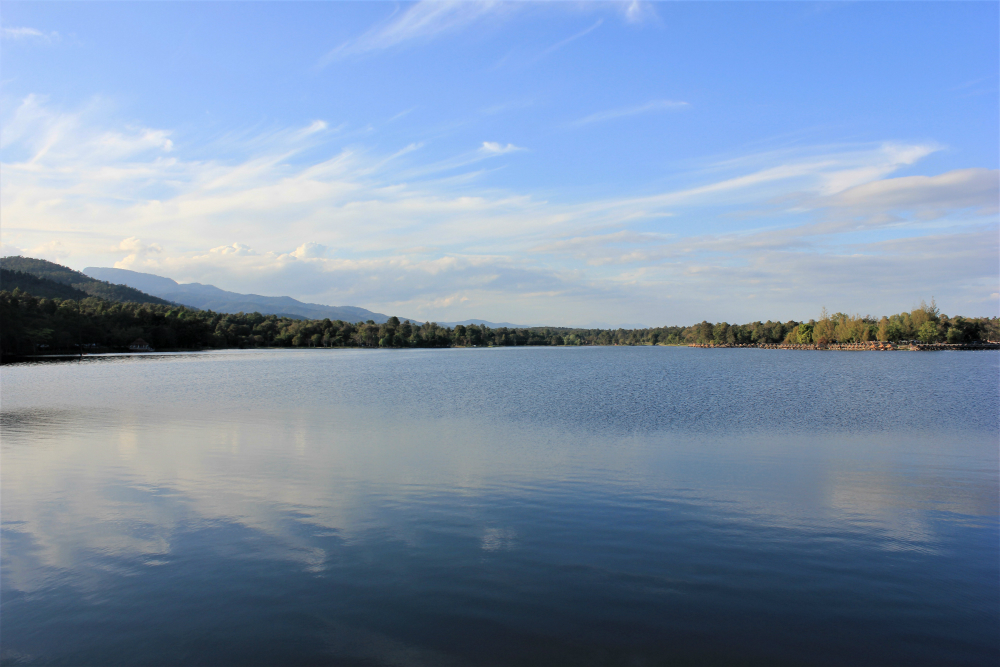
Huay Tung Tao Lake, great day out from Chiang Mai
Co-Working Spaces in Chiang Mai, Thailand
We’re digital nomads so we often use coworking spaces in Chiang Mai. We used a few different co-working spaces for when we needed a stable internet connection and a quiet room for Skype meetings.
- M-A-N-A (25฿ to use a Skype room for an hour, or 19฿ to use a shared space)
- Punspace and Punspace Tha Phae Gate (289฿ / $9 /£6.62 per day, no hourly pricing)
- Heartwork (Free! but buy a coffee or other drink)
Of the above, M-A-N-A was our favourite. Friendly staff and convenient pricing if you just want to use the space for a meeting or two. Punspace doesn’t make sense unless you plan to spend all day there. Heartwork was also a nice area, but it has limited opening hours which meant we didn’t use it as often as we wanted to.
How much does a VISA cost for Thailand?
Many nationalities can visit Thailand for 30 days without a VISA. Check to see if your country is on the list. You can extend your VISA for a further 30 days for 1900฿ / $59 / £44 at the VISA office in Chiang Mai. You should do this well in advance of your VISA expiry date!
It’s also possible to do a “VISA run” to Laos or Cambodia — though this is a legal grey area. Much depends on the mood of the border official on whether they’ll allow re-entry.
Other Costs of Living in Chiang Mai
There are three potential spends not included in our budget. They are withdrawal fees for using a card abroad, travel insurance and the cost of flights to and from Thailand.
Withdrawal fees can be expensive in Thailand, with 220฿ / $6 / £5 being the usual cost. To avoid this, we got a credit card with no foreign currency charge and no foreign withdrawal fees. If you use a credit card, remember to pay off your balance in full as soon as possible.
We don’t use travel insurance, but this is a personal choice. If you do use travel insurance, remember to factor in this expense.
Lastly, you’ll have to include the costs of your flights in and out of Thailand. We don’t include these as they obviously vary depending on where you’re coming from and where you’re going to. Coming from Malaysia (as we did) can cost as little as $30. Coming from London can cost at least ten times that.
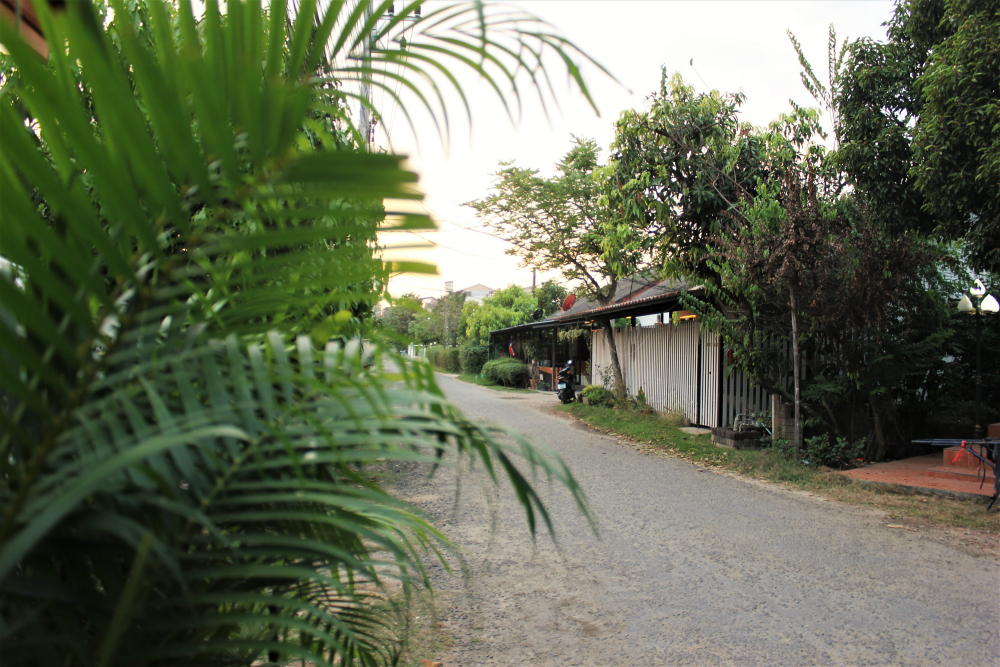
Drawbacks of Living in Chiang Mai
Thailand isn’t all sunshine, Singha on the beach and green Thai curries. Okay, that’s a large part of it, but there are drawbacks too.
The main drawback is the traffic. It’s dangerous, noisy and causes pollution, even in smaller cities like Chiang Mai. They’re building a subway in Bangkok and congestion should ease up when it’s finished. Pollution in Chiang Mai is quite bad and many expats say burning season (February) when locals slash and burn their crops is particularly bad.
The other main drawback is also related to infrastructure. The sewage systems tend to be poorly maintained and there can be a big stink if it rains. Squashed rats are a common sight during the day, with live ones being equally common at night.
But for most people, the plusses heavily outweigh the minuses, which is why so many foreigners move to Chiang Mai!
Budget Template for Travelling
Want to start your own travel budget? It’s easy to do and can help your money (and your travels) last a lot longer! You can make a copy of our travel budget template if you like.
If you’re looking for the cost to travel around Thailand, read our Thailand travel budget post.





Jolson de Carlos
Chiang Mai 👍 my favorite place in Thailand 🇹🇭 Every time I come to Chiang Mai, I feel like home coming 👍 I can’t wait to go back there one day. I miss a lot Thailand 😭😭
Charlie Marchant
I love it too! Chiang Mai feels like home very quickly!
Agness of a Tuk Tuk
Chiang Mai seems like an exceptional place to live at, Charlie. These are all exceptional tips and info which I hope to use when in Thailand. :)